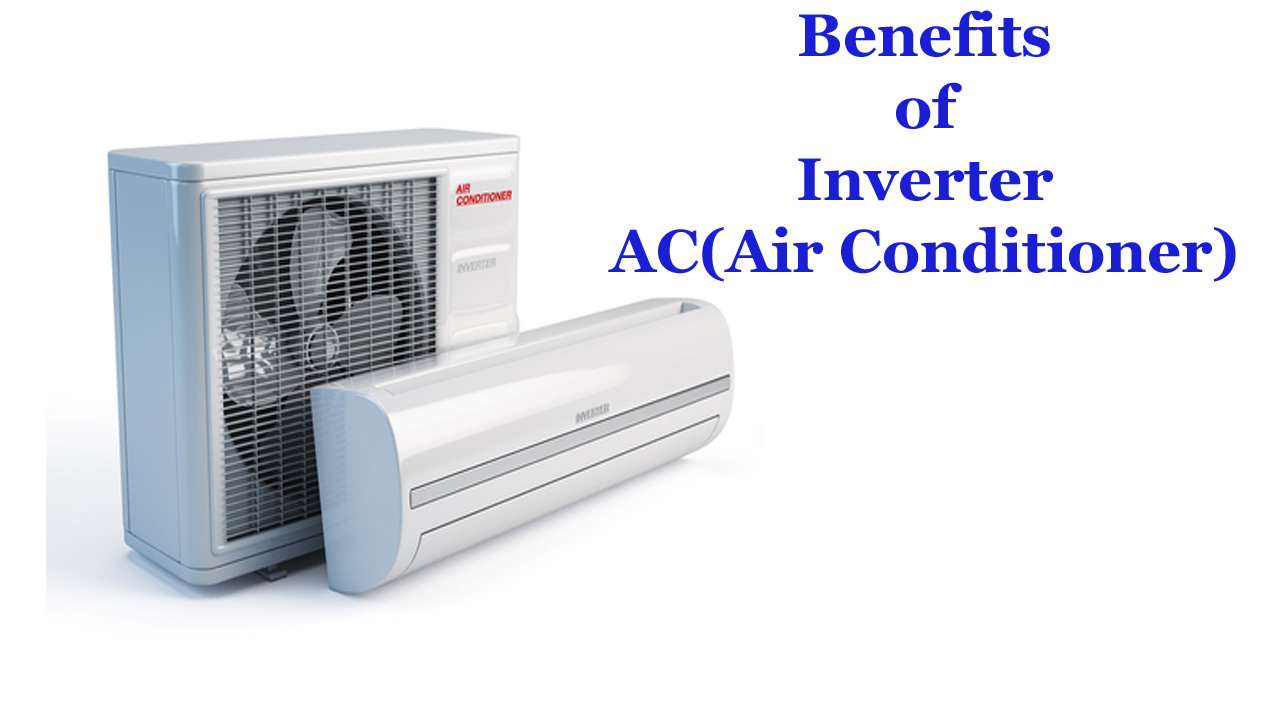Are you attempting to get full-fledged information regarding Inverter AC and its Benefits?
Here, this blog can give you the efficient details that can fulfill your requirements.
Because of their numerous advantages over traditional air conditioners, inverter air conditioners (AC) are becoming increasingly popular. Inverter air conditioners use advanced technology to regulate compressor speed based on room temperature, resulting in increased energy efficiency and cost savings. In this article, we will go over the advantages of inverter air conditioners in depth.
What is the Function of an Inverter Air Conditioner?
What are inverter AC? Inverter air conditioners are designed to be efficient, quiet, and simple to use. An inverter is a piece of energy-saving technology that controls the motor speed to eliminate wasted operation in air conditioners. Inverter air conditioners regulate the temperature of a room by varying the speed at which their motors run without cycling on and off.
Inverter ACs are classified into two types:
Inverter Split AC
The most common type, with a single compressor and multiple indoor units. The outdoor unit has an inverter circuit board that efficiently distributes power to each of its components. It also keeps things cool by regulating the temperature at user-defined levels, saving both electricity and money! Inverter Split Air Conditioners are extremely simple to install and operate. With various modes, you can adjust the cooling power according to the room’s temperature.
The best feature of inverter split ACs is their ability to maintain a constant temperature throughout the day, which means no more sweating during the hot summer months!
Window AC with Inverter
These window units have an integrated compressor that operates on an internal cooling powered by DC motors (so there is no direct power supply from outside). With one inverter circuit board and multiple indoor units, they can reduce energy consumption by up to 30%. A variable speed compressor is also included in this type of air conditioner.
The inverter window air conditioner is an excellent option for people searching for a low-maintenance cooling system. The only disadvantage is that they are costly and difficult to install!
- Energy Efficiency: The most significant advantage of inverter air conditioners is their energy efficiency. Inverter air conditioners use a variable-speed compressor that adjusts its speed based on the room’s temperature. As a result, the compressor does not have to cycle on and off all the time, which reduces power consumption.Traditional air conditioners use a fixed-speed compressor that cycles continuously, resulting in higher energy consumption.
- The variable speed compressor in inverter air conditioners helps reduce energy consumption by up to 50% compared to conventional air conditioners.
- Cost Savings: The energy efficiency of inverter ACs results in long-term cost savings. Although inverter air conditioners are initially more expensive, they save money in the long run due to their energy efficiency. Compared to conventional ACs, inverter ACs are more efficient at cooling a room, resulting in lower electricity bills. The cost savings from an inverter AC can outweigh the initial higher cost over time.
- Faster cooling: Inverter ACs can quickly cool a room than standard air conditioners. The variable speed compressor in inverter air conditioners can adjust the compressor speed based on the room temperature, resulting in faster cooling. Traditional air conditioners, on the other hand, take longer to cool a room because the compressor cycles on and off continuously. Because inverter air conditioners cool faster, they are ideal for use in hot and humid climates.
- Quieter operation: When compared to traditional air conditioners, inverter air conditioners operate quietly. The variable speed compressor in inverter air conditioners adjusts the compressor speed based on the room’s temperature, resulting in less noise. Conventional air conditioners, on the other hand, produce more noise because the compressor cycles on and off continuously. Because of their quieter operation, inverter air conditioners are ideal for use in bedrooms and other quiet areas.
- Longer Lifespan: Compared to conventional ACs, inverter ACs have a longer lifespan. Because inverter air conditioners have fewer moving parts, they last longer. Conventional air conditioners, on the other hand, have more moving parts, resulting in increased wear and tear. Because inverter ACs have a longer lifespan, they are a more cost-effective option in the long run.
- Better Air Quality: When compared to traditional air conditioners, inverter air conditioners provide better air quality. Filters in inverter air conditioners remove impurities from the air, resulting in cleaner air. Filters in inverter air conditioners can remove dust, pollen, and other allergens, making them ideal for people with allergies or respiratory issues. In contrast, traditional air conditioners lack filters to remove impurities from the air.
- Temperature Control: Compared to traditional ACs, inverter ACs provide better temperature control. The variable speed compressor in inverter air conditioners adjusts the compressor speed based on the room temperature, resulting in better temperature control. In contrast, traditional air conditioners have fixed-speed compressors that cannot be adjusted based on the room’s temperature. Because inverter ACs have better temperature control, they are ideal for use in areas with fluctuating temperatures.
- Environmentally Friendly: When compared to traditional air conditioners, inverter air conditioners are more environmentally friendly. Inverter air conditioners use less energy than traditional air conditioners, reducing greenhouse gas emissions.
- The energy efficiency of inverter air conditioners contributes to a reduction in the carbon footprint of households and businesses. Conventional air conditioners, on the other hand, consume more energy and contribute to higher greenhouse gas emissions.
- Smarter Control: Remote control panels are included with inverter air conditioners, allowing you to operate them from anywhere in the room. This is especially useful in large rooms with multiple occupants who may not always be in the same place at the same time. You can set different temperatures for each occupant and then adjust them to their liking. Smart controls on inverter air conditioners allow for better temperature and energy usage control. Some inverter air conditioners include remote controls or mobile apps that allow you to adjust the temperature or turn the AC on and off from anywhere. Some models even include advanced features such as voice control or Wi-Fi connectivity, making them more convenient and efficient to use.
Conclusion
Inverter air conditioners use advanced technology to adjust the speed of the compressor based on room temperature, resulting in increased energy efficiency and reduced costs. Inverter air conditioners are efficient, quiet, and easy to use. Inverter is an energy-saving technology that controls the speed of the motor to avoid running the air conditioner wastefully. Inverter air conditioners adjust the room temperature by changing the rotation speed of the motor without repeatedly turning it on and off. An inverter board and multiple indoor units reduce power consumption by up to 30%.
Inverter air conditioners use variable-speed compressors that adjust their speed according to the room temperature. In contrast, conventional air conditioners use fixed-speed compressors that cycle on and off continuously, resulting in high energy consumption. Variable speed compressors in inverter air conditioners reduce energy consumption by up to 50% compared to conventional air conditioners.
Inverter air conditioners are expensive at first, but they save you money in the long run due to their energy efficiency. If you compare it to traditional AC, inverter AC can cool spaces more efficiently, thus reducing your utility bills. The variable speed compressor of the inverter air conditioner can adjust the rotation speed of the compressor according to the room temperature, so cooling is faster.
A conventional air conditioner, on the other hand, takes longer to cool a room because the compressor is constantly cycling on and off. Inverter air conditioners cool down quickly, making them ideal for use in hot and humid environments. Quiet operation: Inverter air conditioners are quieter than conventional air conditioners. Variable speed compressors in inverter air conditioners reduce noise by adjusting the number of revolutions of the compressor according to the room temperature. Inverter air conditioners operate quietly, making them ideal for use in quiet areas such as bedrooms. Variable speed compressors in inverter air conditioners improve temperature control by adjusting the number of revolutions of the compressor according to the room temperature. In contrast, conventional air conditioners have fixed-speed compressors that cannot be adjusted for room temperature.
AC inverters have better temperature control, making them ideal for use in areas with fluctuating temperatures. Compared with conventional air conditioners, inverter air conditioners are more environmentally friendly. Inverter air conditioners consume less power than conventional air conditioners, resulting in fewer greenhouse gas emissions. The energy efficiency of inverter air conditioners helps reduce the carbon footprint of homes and businesses. Inverter air conditioners can better control temperature and energy consumption. Some inverter air conditioners include a remote control or mobile app that can adjust or rotate the temperature.
FAQs
1.What is an inverter AC?
An inverter AC is a type of air conditioner that uses a variable speed compressor to adjust its cooling capacity based on the temperature and humidity of the room.
2.How does an inverter AC work?
An inverter AC works by controlling the speed of the compressor motor based on the temperature and humidity of the room. It constantly adjusts its cooling capacity to maintain a stable temperature, which gives greater energy efficiency and lower electricity bills.
3.What are the benefits of using an inverter AC?
Inverter ACs provide huge benefits over traditional ACs, including greater energy efficiency, lower electricity bills, quieter operation, and more precise temperature control.
4.How do I know if an inverter AC is right for my needs?
Air conditioners with inverter technology are often better suited to people who use their air conditioners for long periods of time, or who live in areas with high temperatures and humidity. A more energy-efficient and cost-effective cooling solution may be an inverter AC.
5.Are inverter ACs more expensive than traditional ACs?
Inverter ACs can be more expensive than traditional ACs upfront, but they can save you money in the long run through greater energy efficiency and lower electricity bills.
6.How do I maintain my inverter AC?
To ensure the proper upkeep of your inverter AC, it’s essential to consistently clean or replace the air filters, maintain a debris-free outdoor unit, and schedule professional servicing at least once a year.
7.Can I install an inverter AC myself?
It’s not recommended to install an inverter AC yourself, as it requires technical expertise and knowledge of electrical wiring and refrigerant handling. It’s best to hire a professional HVAC technician to install and maintain your inverter AC.
8.How do I troubleshoot common problems with my inverter AC?
If you’re experiencing problems with your inverter AC, such as poor cooling performance or error codes, you should consult the user manual or contact a professional HVAC technician for assistance. Some common issues may be caused by clogged air filters, low refrigerant levels, or faulty sensors.


